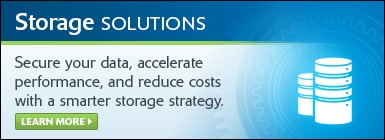You never know when you’ll need to go diving into an archive somewhere. While you have to admit it looks cool in movies, we’re all lucky that the days of slowly sliding through microfiche in a library or a dingy office basement for critical information are over. The new way to store vast quantities of information in an easily accessible and secure way is through disk storage.
If you have to back up a lot of information that you want to access quickly or be able to restore data without worries, disk backups are the way to go. As a lower cost option to tape drives, with huge storage, faster time to access data and only slightly less long-term survivability—disk storage is an intelligent choice for backing up an organization’s critical systems... .
When looking at a disk backup system, there are a few things that you should consider. The most important of these are storage capacity and transfer speed. It’s best to look at how much data your organization needs to store, as well as how much they might need to store in the future should your needs scale. In terms of transfer speed, you should bear in mind how quickly you’ll need to be bringing data over from archival files or backups. It also goes without saying that you should have a security plan in place to make sure that your critical backups don’t get hit if your company is targeted by a cyberattack.
Without a strong backup system and plan, you are putting your entire company at risk in case of a cyberattack, standing to lose long-term knowledge and business continuity. For this reason, disk backups work best as part of a redundant system that also includes tape backups.
To learn more about how to set up an effective disk backup system—and for all your questions about disk backups—get in contact with Connection today. You’re only a call or click away from talking to product experts about what will suit your needs best.


















